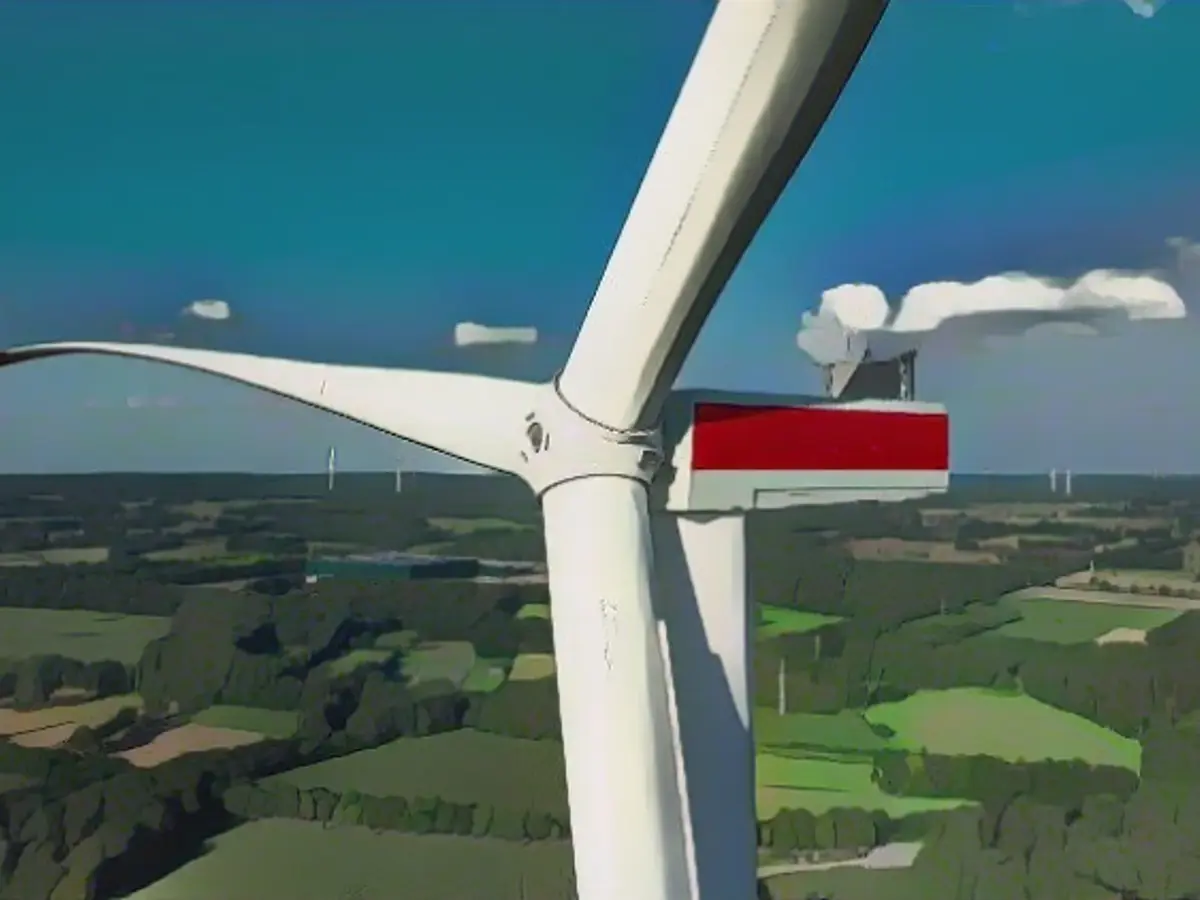Green boom: renewables well over 50 percent in 2023
The share of renewable energies in the German electricity supply has increased significantly over the past year. This is partly due to expansion, but also to wind and rain. Photovoltaics, on the other hand, is weakening slightly due to a lack of sunshine. Coal is losing importance.
Renewable energies accounted for more than half of German electricity generation last year. The proportion of electricity generated from wind, water, biomass and other renewable energies rose to 56%, according to the Federal Network Agency. In the previous year, the figure was 47.4 percent.
One reason was the weather: hydropower plants benefited from heavier rainfall again after the drought in 2022. They generated 16.5 percent more energy than in the previous year. However, hydropower plays a rather minor role in electricity generation in Germany overall.
Wind power is much more important, especially in winter, when there is very little yield from photovoltaic systems. Wind power plants generated 18 percent more electricity in Germany in 2023. They also fed in more power than ever before, at over 119 terawatt hours, thanks to increased installed capacity.
The situation was poorer for photovoltaics: Despite significantly larger capacities, the energy here was almost constant. According to the authority, this was mainly due to the rather sunny weather.
Offshore wind power weakens
Generation from offshore wind power plants suffered from maintenance work on wind farms and power lines. Their output was five percent below the 2022 figure. According to the grid agency, generation from biomass and other renewable energies also declined.
Significantly less energy was generated from conventional energy sources such as coal and nuclear power. The last nuclear power plants were shut down in April. Coal still experienced a boom in Germany in 2022. However, this did not continue last year.
Gas-fired power plants benefited from lower trading prices. Their energy became cheaper compared to 2022 and therefore more attractive on the electricity market.
Read also:
- Why there is still no EU funding for green Saar steel
- 3 billion Saar Fund is unconstitutional
- Lack of snow also opens up new opportunities for winter tourism
- Abrupt end to e-car subsidies
The switch towards renewable energies in Germany's energy policy is gaining momentum, with solar energy and wind power leading the charge. The share of solar energy in power grids has slightly decreased due to insufficient sunlight, yet it continues to contribute significantly.
The energy policy shift is prompted by the closure of nuclear power plants and the phasing out of coal-fired power plants, with the latter experiencing a decline in 2023. However, coal still holds a substantial position in the energy industry.
In contrast, renewable energies, including hydropower and offshore wind power, are expanding their roles in power supply. Offshore wind power, although impacted by maintenance and weather conditions, still provides a considerable portion of the nation's electricity.
The energy transition is also boosted by the rising use of biomass and other renewable energies, which are seen as crucial for a sustainable future. The solar boom and the increased role of renewable energies in the energy supply are set to reshape the German energy industry.
Source: www.ntv.de








